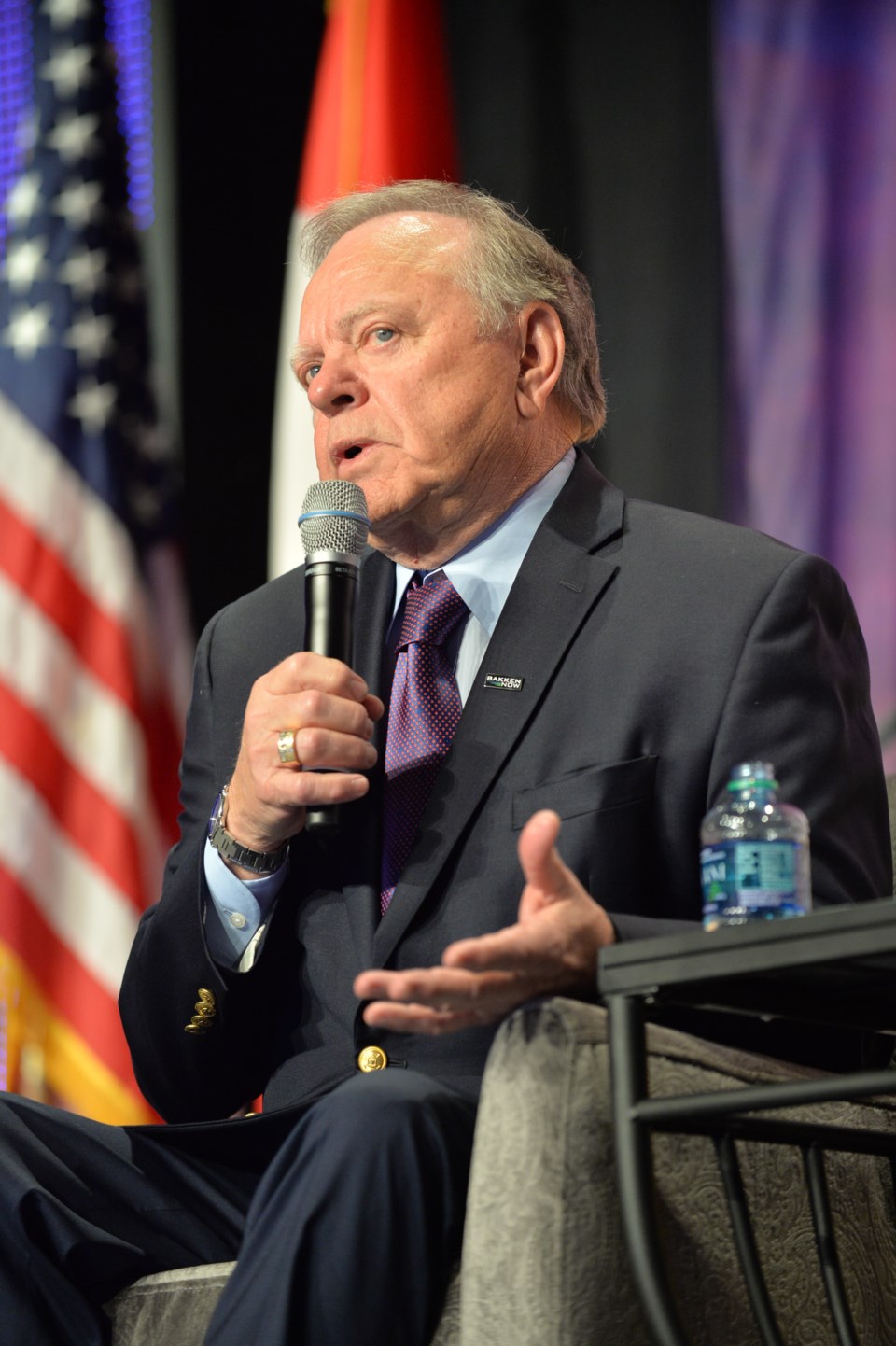Bismarck, N.D. – Continental Resources chairman and CEO Harold Hamm has had a lot to say about energy independence for the United States in his remarks to the Williston Basin Petroleum Conference over the years. With American oil production again heading towards new heights, where does he see Canada in this equation? As a competitor, not a compatriot.
The head of the largest oil producer in North Dakota spoke to Pipeline News one-on-one on May 24 at this year’s version of the conference, which alternates between Bismarck, N.D. and Regina.
Pipeline News: Where does Canada fit in your idea of energy independence?
Harold Hamm: Canada? They are, of course, energy independent, as far as that country. They’ve got gas that they export, and have for a long time, and certainly export a lot of oil, from the tar sands. So they’ve been energy independent.
P.N.: How do we fit in America’s equation, because 99 per cent of our oil exports are to the United States?
Hamm: That’s right. But Canada has got to get a pass-through system going. And they are. They basically bought refineries down here and everything to support their tar sands, much to our chagrin, frankly, and transformed those complete refineries to complex, heavy crude refineries. It really cost America a lot. That’s why we have to export. We didn’t have sufficient refinery space for sweet crude.
P.N.: How much are you exporting now, for Continental?
Hamm: You know, ours is varying, but its increasing. It’s a small percentage, at this point, compared to our production. We’re exporting more and more.
P.N.: Do you see Canada as a competitor or a compatriot?
Hamm: They’re definitely competitors. They’re definitely competitors.
P.N.: Two years ago, TransCanada was talking about building a pipeline from Williston into Saskatchewan, which would have tied into the Energy East project, and would have been able to ship Williston oil into Eastern Canada. Now, that project is dead because Energy East was killed. Would you have taken advantage of those export opportunities?
Hamm: We would have, if it had been created. That was Line 9?
P.N.: This was a totally different line. They were going to convert a 42-inch gas line to oil. It was going to a 1.1 million barrel capacity, and it was going to have a 300,000 barrel per day lateral from Williston to Moosomin, Saskatchewan.
Hamm: Okay. Uh, sure. Everybody’s trying to share space and whatever to get crude to markets from out here. Not all these things work, you know.
P.N.: One last question: Do you think America, by itself, can become crude, independent, or do you think the United States, and Canada, together, can do it.
Hamm: No, I think the U.S. Obviously we’re on a trajectory right now that will see energy independence in America in crude oil and liquids by 2020. So, yeah, we’re getting there ourselves.
P.N.: So if Canada is selling three million barrels a day to the United States, then you have to export three million barrels?
Hamm: They’re exporting more than that. I mentioned yesterday that almost six million barrels of refined products is being exported every day, and a lot of that is out of Canada.




